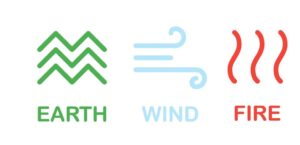 By David Levin-Kruss, Yesod Europe’s Jewish Learning Director:
By David Levin-Kruss, Yesod Europe’s Jewish Learning Director:
In the time of the Mishna and Talmud, younger rabbis would learn from their elders by sitting at their feet and absorbing their words and actions. This was an ancient form of mentoring. We would expect the Mishna to praise this phenomenon wholeheartedly but, instead it sounds a cautionary note.
Avot 2:10
| And warm yourself by the fire of the Sages but be careful around their coals that you should not be burned, for their bite is the bite of a fox, and their sting is the sting of a scorpion, and their hiss is the hiss of a (burning) angel, and all their words are like burning coals. | וֶהֱוֵי מִתְחַמֵּם כְּנֶגֶד אוּרָן שֶׁל חֲכָמִים, וֶהֱוֵי זָהִיר בְּגַחַלְתָּן שֶׁלֹּא תִכָּוֶה, שֶׁנְּשִׁיכָתָן נְשִׁיכַת שׁוּעָל, וַעֲקִיצָתָן עֲקִיצַת עַקְרָב, וּלְחִישָׁתָן לְחִישַׁת שָׂרָף, וְכָל דִּבְרֵיהֶם כְּגַחֲלֵי אֵשׁ: |
Questions to Ponder
- “…their bite is the bite of a fox, and their sting is the sting of a scorpion, and their hiss is the hiss of a (burning) angel.” – Why three metaphors? Wouldn’t one have been enough?
- Coals, fire and burning are mentioned a few times in this passage. What is dangerous or exciting about fire? How can fire be both positive and negative?
- When were you inspired and helped by the fire of a mentor? When were you burned?
A very different idea about mentoring is given in the following biblical passage.
Background: The prophet Elijah fasts for forty days. Finally, he arrives at Mount Chorev and finds a cave and sleeps there. In the cave, G-d’s voice comes to him and asks Elijah what is going on. Elijah responds that he is hiding from the Israelites who want to kill him. Not stated, but implied, is that Elijah is ready to give up on his mission. So, G-d needs to act as a mentor. It works and Elijah continues with his task.
Melachim Alef (1 Kings) 19:11-12
| “Come out,” He called, “and stand on the mountain before the L-rd.” And lo, the L-rd passed by. There was a great and mighty wind, splitting mountains and shattering rocks by the power of the L-rd; but the L-rd was not in the wind. After the wind—an earthquake; but the L-rd was not in the earthquake. After the earthquake—fire; but the L-rd was not in the fire. And after the fire—a still small voice. | וַיֹּ֗אמֶר צֵ֣א וְעָמַדְתָּ֣ בָהָר֮ לִפְנֵ֣י יקוק וְהִנֵּ֧ה יקוק עֹבֵ֗ר וְר֣וּחַ גְּדוֹלָ֡ה וְחָזָ֞ק מְפָרֵק֩ הָרִ֨ים וּמְשַׁבֵּ֤ר סְלָעִים֙ לִפְנֵ֣י יקוק לֹ֥א בָר֖וּחַ יקוק וְאַחַ֤ר הָר֨וּחַ רַ֔עַשׁ לֹ֥א בָרַ֖עַשׁ יקוק׃ וְאַחַ֤ר הָרַ֙עַשׁ֙ אֵ֔שׁ לֹ֥א בָאֵ֖שׁ יקוק וְאַחַ֣ר הָאֵ֔שׁ ק֖וֹל דְּמָמָ֥ה דַקָּֽה׃ |
Questions to Ponder
- As above, at least three phenomena are mentioned – wind, earthquake, and fire. Why three? Wouldn’t one have been enough?
- How is a “still, small voice” different from fire? Why did this work when all the other, grander occurrences did not?
- When in your life have you heard a still, small voice guiding you?
- When is a still, small voice not sufficient?
- What have you learned about mentoring from comparing these two texts?
Based on “Sometimes There Is Too Much of a Good Thing” by Rabbi Misha Clebaner
